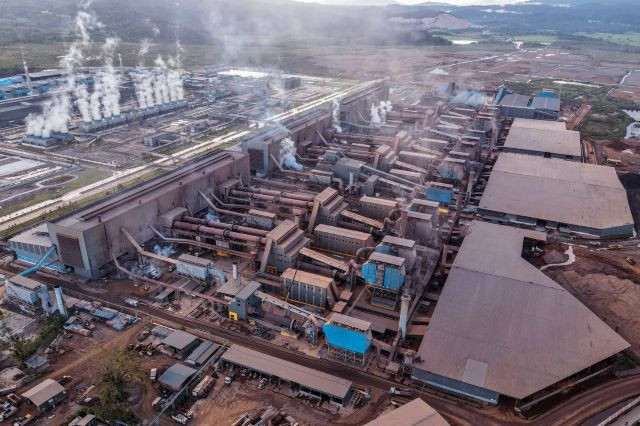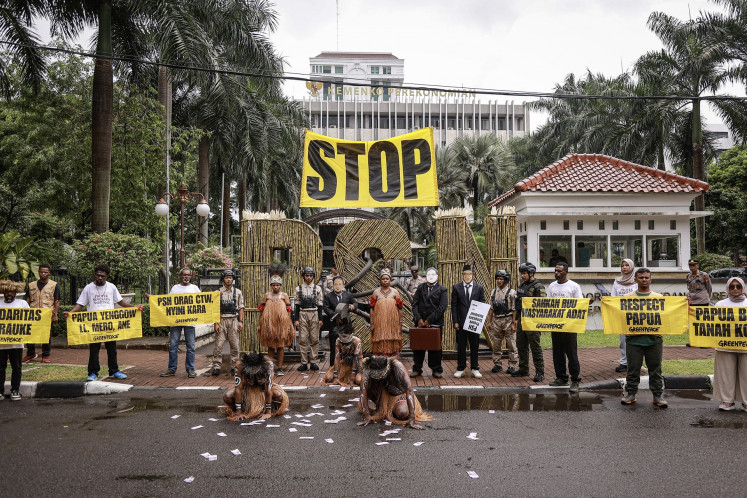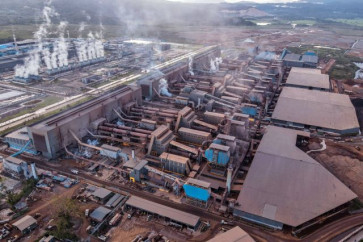Popular Reads
Top Results
Can't find what you're looking for?
View all search resultsPopular Reads
Top Results
Can't find what you're looking for?
View all search resultsDownstreaming is losing ground for Indonesian development
Indonesia's mining sector is known to be a catalyst for deforestation in Southeast Sulawesi province, a heavily mined region that serves as the habitat for diverse primate populations negatively impacted by habitat loss.
Change text size
Gift Premium Articles
to Anyone
I
n the latest presidential and vice-presidential debates, Indonesia's future policies reveal a grim reliance on downstreaming as the ultimate fix, not just for the economy but a reckless gamble on everything. This high-stakes bet could throw Indonesia's development into a tailspin. The ambitious vision of an advanced economy by 2045 now rings hollow, a casualty of empty promises.
Downstreaming is hailed as the cure-all, from environmental problems to geopolitical challenges and Indonesia's economic hurdles. Yet, this silver bullet is actually a byproduct of security-driven economic policies in industrialized nations, pushing countries like Indonesia toward a regressive, inward-focused approach in its critical phase of development.
Amid the reshaping global economic landscape driven by geopolitics, advanced nations are resurrecting industrial policies in today's competitive and conflict-ridden arena, underpinned by a security-driven logic. This resurgence has prompted a surge in trade interventions, industrial strategies and subsidies, amplifying the global economic threat posed by widespread violations of trade rules.
Capitalizing on this geopolitical shift, Indonesia is strategically aiming for an enhanced position in the electric vehicle (EV) battery supply chain, transitioning from ore mining to battery assembly and aligning with the onshoring trend observed in major importers such as the United States and European Union.
In the US strategies focus on enticing investments with tax credits outlined in the Inflation Reduction Act (IRA), while in Europe, they involve government loans through the InvestEU program and various initiatives at the member-state level. A significant development involves an anti-subsidy investigation targeting Chinese automakers, aiming to restrict inexpensive imports into the European market.
Yet, this poses a significant challenge for Indonesia, given its dependence on Chinese manufacturers and financial support in the nickel sector, raising concerns about vulnerabilities in its EV ambitions.
Despite nickel's apparent role in net-zero ambitions, Indonesia faces a scenario akin to Saudi Arabia with its oil reserves, abundant resources whose value may dwindle amid the booming EV sector. Indonesia's nickel reserves and industrial aspirations face devaluation due to shifts in battery chemistry.



















